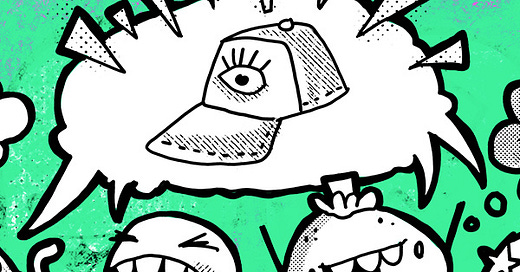11. Community (definition)
NOTE: if you’re new to Ground-Up Governance, or are finding anything a bit strange or confusing, you might want to START HERE.
We already know that a stakeholder is basically anybody who’s impacted by your company’s actions. Consider, for example, your new store, Reallie Steilish Hats (hey look, you did it!). If you really squint, Billie Eilish is one of your stakeholders because your company is inspired by her and tries to improve the lives of stylish (steilish?) Eyelashes. Cool, right?
A lot of people also like to talk about their company’s “community”. Community is not easy to distinguish from a stakeholder. The difference might just be a matter of opinion or perspective. But let’s define “community” just so we’re not confusing things.
Communities are groups of people – or even groups of groups of people, like multiple households – who share some common interest. They have some reason to care about the same thing(s) in the same way. So, if you launch a Reallie Steilish Hats pop up shop, everyone who lives near that shop is affected. Sure, some people in the neighbourhood might love it and others might think it’s obnoxious, but in the end they all want their neighbourhood to thrive, because they’re a community.
So, for the sake of our story, “stakeholders” and “community” do not mean the same thing. Your stakeholders might include multiple communities, for sure, but that doesn’t mean you can mush those communities together into some kind of supercommunity.
But what about Reallie Steilish’s community? Is that a thing? It probably is, actually. It might include you, your employees, maybe some customers, maybe even other companies. It depends, really. Who shares a common interest with your company?





